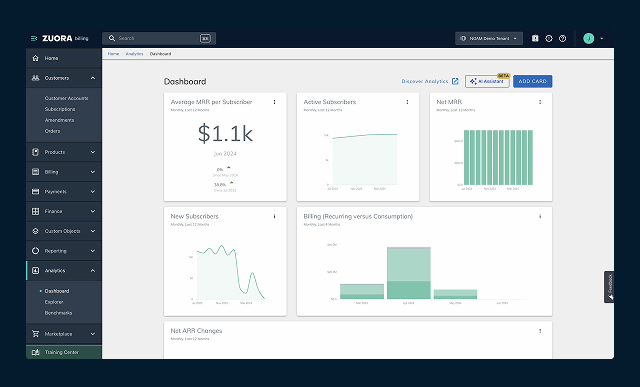In the beginning, there was Microsoft Excel. Businesspeople in every industry vertical accepted, for that time at least, that this was the full toolset when it came to analytics and information insight… it was even possible to get an ‘auto-sum’ function and tot up columns of data with one click simplicity. Some even spoke of a hidden flight simulator.
Times were simpler, but people were happy.
Then, somewhere back in the 1990s (nobody is exactly sure when, but we do know that the pre-SAP BusinessObjects was founded back in 1990), the new age of Business Intelligence (BI) happened… and eventually, all database companies needed to evidence some level of BI competency.
People were still mostly happy even as times were getting more complex, but the ‘unified platform promise’ kept the masses from revolting, mostly.
A new era of real-time
Ultimately, around a quarter century after the millennium (Ed: it’s still only 2022 at the time of writing, are you sure you’re okay?) we started to embrace a new reimagining of Artificial Intelligence (AI) and Machine Learning (ML) applied across the full transept of the cloud computing backbone, which enabled us to think about business analytics at scale and in real-time… all with massive extensibility and customization control.
People were excited and interested, but wanted to know how it all worked.
Pledging to validate, explain and illustrate where this evolution has brought us to is real-time business analytics company Incorta.
The company has used the summer recess to announce several new data applications, its marketplace for applications and components, new extensibility features and a new brand identity.
The newly released data applications aim to extend the reach and agility of Incorta and the new Incorta Marketplace opens the door to customizations and packaged solutions from partners and the community.
General availability of the Incorta component SDK (Software Development Kit) along with an expanding list of data connectors and data destinations bolster the platform’s openness and extensibility.
Unlimited data curiosity
The company’s new brand identity is said to pay homage to the flexibility and simplicity made possible by Incorta’s architectural design. It is intended to highlight the platform’s ability to inspire and enable what the company’s marketing spin doctors call ‘unlimited data curiosity’.
“Companies desperately want to become more agile and data-driven, but they are often hamstrung by outdated data engineering methods and tools, some almost 30 years old,” said Scott Jones, Incorta CEO. “Incorta makes it 100x easier for IT teams to solve for data access and self-service, with agility, scalability and security. And now, our expanding marketplace of data applications and custom components further shortens the distance between data and insights for our customers.”
The company is opening the door to partner and community contributions for Incorta’s own marketplace, which includes analytic content packaged as data applications and custom components, such as visualizations and controls for dashboards.
Early contributions include a data application from Incorta partner Perficient for financial planning, budgeting and consolidation against Oracle Cloud Enterprise Performance Management (EPM), and Incorta partner Dilytics for process manufacturing based on Oracle Process Management (OPM).
Customized analytic applications
Incorta’s extensibility story continues to grow with the addition of new components to the marketplace that are built using the Incorta component SDK providing almost unlimited flexibility and customization.
The component SDK joins the connector SDK which developers can use to create new data connectors that augment the 50+ supported connectors delivering access to over 240 data sources. The Incorta SDKs, SQL interfaces, APIs and multi-language code notebooks enable software application development professionals to build customized analytic applications on the Incorta platform.
New data applications include:
- Workday (Workforce and Compensation)
- Oracle EPM Cloud (Financial Consolidation)
- Oracle ERP Cloud (Human Capital Management)
- Oracle Cloud Enterprise Performance Management (Oracle EPM Cloud for Finance)
- Oracle EBS & ERP Cloud (Financials & Supply Chain)
- SAP ECC (Financials & Supply Chain)
- Oracle Process Management (Oracle EBS Process Manufacturing)






